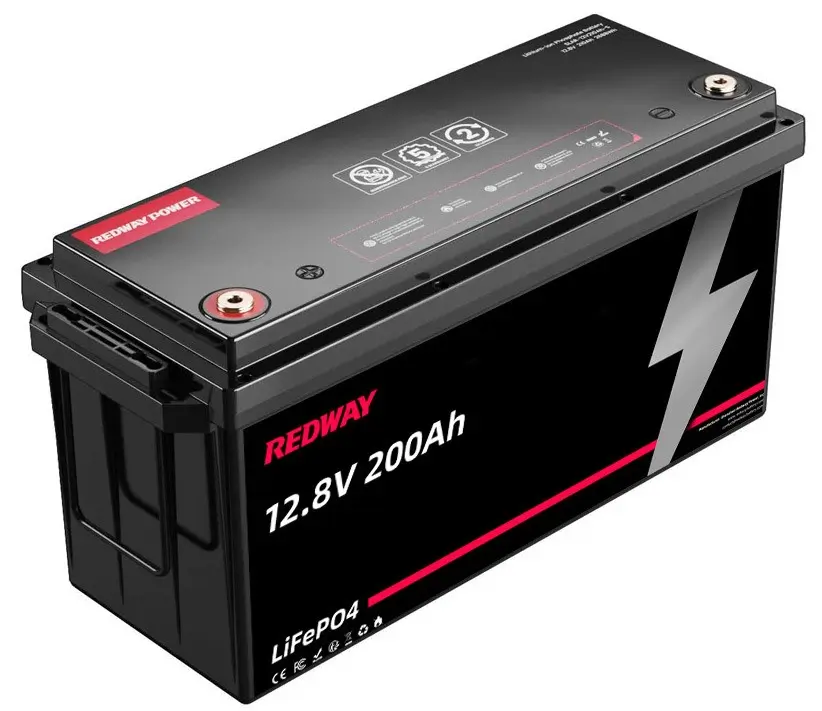Unleashing the Potential of 12V LiFePO4 Lithium Batteries
The realm of energy storage has undergone a significant transformation with the advent of lithium batteries. Among the various lithium-ion batteries available, the 12V LiFePO4 lithium batteries stand out for their exceptional performance and versatility. This article delves into the intricacies of these batteries, exploring their chemistry, applications, and the untapped potential that can revolutionize industries.
Understanding 12V LiFePO4 Lithium Batteries
A. Overview of LiFePO4 Chemistry
At the heart of 12V LiFePO4 batteries lies the unique lithium iron phosphate (LiFePO4) chemistry. Unlike traditional lithium-ion batteries, LiFePO4 offers inherent stability, making it a safer and more reliable choice for various applications. The chemical structure of LiFePO4 contributes to its enhanced thermal and chemical stability, minimizing the risk of overheating or combustion.
B. Advantages over Other Lithium-ion Batteries
LiFePO4 batteries exhibit distinct advantages over other lithium-ion counterparts. Their stable chemical composition enhances safety, making them suitable for applications where safety is paramount. Additionally, LiFePO4 batteries boast a longer cycle life, providing a sustainable and cost-effective solution for energy storage needs.
C. Key Features and Specifications
Understanding the key features and specifications of 12V LiFePO4 batteries is crucial for unlocking their potential. These batteries typically offer a higher energy density, allowing for more extended periods of use between charges. Moreover, they excel in maintaining a consistent voltage throughout the discharge cycle, providing reliable power for various applications.
Applications of 12V LiFePO4 Lithium Batteries
A. Automotive Industry
Electric Vehicles
The automotive industry has embraced the shift towards sustainable transportation, with electric vehicles (EVs) gaining popularity. 12V LiFePO4 batteries play a pivotal role in powering EVs, providing the energy density required for longer driving ranges and faster charging times. The inherent safety features of LiFePO4 chemistry make these batteries a preferred choice for electric vehicle manufacturers.
Start-Stop Systems
In conventional vehicles, start-stop systems are employed to enhance fuel efficiency by shutting down the engine during idle periods. 12V LiFePO4 batteries prove advantageous in these systems due to their rapid charging capabilities and longevity, ensuring reliable performance in frequent start-stop scenarios.
B. Renewable Energy Systems
Solar Power Storage
Renewable energy sources, particularly solar power, are integral to a sustainable future. 12V LiFePO4 batteries serve as efficient storage solutions for solar energy, allowing users to harness electricity generated during peak sunlight hours and utilize it during periods of low solar activity. The longevity of LiFePO4 batteries contributes to the overall sustainability of solar power systems.
Wind Energy Storage
Similarly, in wind energy applications, where power generation fluctuates based on wind speeds, LiFePO4 batteries provide a stable and reliable energy storage solution. The ability to store excess energy during high wind conditions and release it during lulls ensures a consistent power supply.
C. Marine and RV Applications
Boat Propulsion
In the maritime industry, 12V LiFePO4 batteries are making waves in boat propulsion systems. Their lightweight design, high energy density, and resistance to temperature extremes make them ideal for powering electric boats, offering a cleaner and more sustainable alternative to traditional fuel-powered marine engines.
Off-Grid Living
For individuals embracing off-grid living in recreational vehicles (RVs), LiFePO4 batteries prove indispensable. Their ability to store and release energy efficiently, coupled with a longer cycle life, ensures a reliable power source for appliances and devices, enabling a more comfortable and sustainable off-grid lifestyle.
Unleashing the Potential
A. Enhanced Safety Features
Inherent Stability
The inherent stability of LiFePO4 chemistry is a game-changer in terms of battery safety. Unlike some other lithium-ion chemistries, LiFePO4 batteries are less prone to thermal runaway, a critical factor in applications where safety is paramount. This feature not only safeguards users and their assets but also contributes to the overall reliability of systems utilizing these batteries.
Resistance to Thermal Runaway
Thermal runaway, a phenomenon that can lead to catastrophic failure in batteries, is significantly mitigated in 12V LiFePO4 batteries. Their ability to resist extreme temperature fluctuations ensures stable performance, even in challenging environments. This characteristic is particularly crucial in applications such as electric vehicles, where batteries may be exposed to varying weather conditions.
B. Longer Cycle Life
Impact on Sustainability
The extended cycle life of 12V LiFePO4 batteries has profound implications for sustainability. Unlike traditional lead-acid batteries that degrade more quickly with frequent charging and discharging, LiFePO4 batteries can withstand a higher number of cycles. This longevity reduces the frequency of battery replacements, minimizing environmental impact and contributing to a more sustainable energy storage landscape.
Cost-Effectiveness Over the Long Term
While the initial investment in LiFePO4 batteries may be higher compared to some alternatives, their longer cycle life and reduced maintenance costs make them a cost-effective solution over the long term. Businesses and individuals investing in these batteries experience a lower total cost of ownership, making them an attractive option for a wide range of applications.
C. Faster Charging
Reduced Charging Time
The ability of 12V LiFePO4 batteries to support faster charging is a significant advantage in various applications. Whether in electric vehicles, renewable energy systems, or off-grid living scenarios, the reduced charging time enhances user convenience and system efficiency. Faster charging also contributes to the overall effectiveness of these batteries in dynamic and high-demand environments.
Increased Efficiency
The efficiency gains associated with faster charging translate into more effective energy utilization. LiFePO4 batteries not only charge quickly but also discharge power consistently, maintaining a stable voltage throughout the process. This efficiency is particularly crucial in applications where a reliable and on-demand power supply is paramount.
Challenges and Solutions
A. Temperature Sensitivity
Implementing Temperature Control Systems
While 12V LiFePO4 batteries exhibit resistance to thermal runaway, temperature sensitivity remains a consideration. Implementing temperature control systems, such as active cooling or heating mechanisms, can optimize the operating conditions of LiFePO4 batteries. These systems ensure that the batteries operate within their optimal temperature range, maximizing both safety and performance.
Optimal Operating Conditions
Understanding and adhering to the optimal operating conditions of LiFePO4 batteries is crucial for overcoming temperature-related challenges. Whether in the scorching heat of the desert or the freezing cold of winter, maintaining the batteries within the recommended temperature range ensures consistent performance and extends their overall lifespan.
B. Cost Considerations
Initial Investment vs. Long-Term Savings
One of the primary challenges associated with 12V LiFePO4 batteries is the initial upfront cost. However, it is essential to view this cost in the context of long-term savings. Considering factors such as extended cycle life, reduced maintenance requirements, and the overall efficiency of these batteries, the initial investment proves to be a wise and sustainable choice for many applications.
Economic Viability in Various Applications
Assessing the economic viability of 12V LiFePO4 batteries in different applications is crucial for widespread adoption. While the cost may be justified in certain high-demand scenarios, evaluating the return on investment in less critical applications can help determine the optimal use cases for these batteries. Continued advancements and economies of scale in production may also contribute to cost reductions over time.
Case Studies
A. Success Stories in Automotive Applications
12V LiFePO4 batteries have garnered success in the automotive industry, particularly in electric vehicles. Case studies showcasing the performance, reliability, and safety of these batteries in various electric vehicle models highlight their contribution to the ongoing shift towards sustainable transportation. From increased driving ranges to reduced charging times, these success stories underscore the transformative potential of LiFePO4 batteries.
B. Implementations in Off-Grid and Renewable Energy Systems
In off-grid and renewable energy systems, case studies demonstrate the effectiveness of 12V LiFePO4 batteries in capturing, storing, and utilizing energy from solar panels and wind turbines. These implementations showcase how LiFePO4 batteries contribute to a more stable and reliable power supply, enabling individuals and businesses to embrace sustainable energy practices.
C. Real-World Performance in Marine and RV Environments
Real-world applications of 12V LiFePO4 batteries in marine and RV environments provide valuable insights into their durability, efficiency, and overall performance. From powering electric boats to serving as the primary energy source for off-grid living in RVs, these case studies highlight the adaptability and versatility of LiFePO4 batteries in demanding and diverse environments. Uncover the possibilities: explore the product for a journey into innovation and excellence.
Future Developments
A. Research and Development Initiatives
Ongoing research and development initiatives in the field of LiFePO4 battery technology aim to further enhance their performance, safety, and cost-effectiveness. Collaborations between academic institutions, industry leaders, and government agencies focus on refining the chemistry, exploring new materials, and optimizing manufacturing processes to unlock even greater potential in these batteries.
B. Technological Advancements in LiFePO4 Battery Technology
Technological advancements in LiFePO4 battery technology are anticipated to address existing challenges and open up new possibilities. Innovations in electrode materials, manufacturing techniques, and energy management systems aim to push the boundaries of what 12V LiFePO4 batteries can achieve. These advancements may lead to improved energy density, faster charging capabilities, and expanded applications.
C. Potential Improvements in Performance and Cost-Effectiveness
The future holds the promise of continuous improvements in the performance and cost-effectiveness of 12V LiFePO4 batteries. As technology evolves and manufacturing processes mature, the barriers to widespread adoption may diminish. This could lead to further cost reductions, making LiFePO4 batteries an even more attractive option for a broader range of applications.
Conclusion
A. Recap of the Advantages of 12V LiFePO4 Lithium Batteries
In conclusion, the journey through the world of 12V LiFePO4 lithium batteries reveals a multitude of advantages that position them as a frontrunner in the energy storage landscape. From their stable chemistry and enhanced safety features to longer cycle life and faster charging capabilities, these batteries offer a compelling solution for various applications across industries.
B. Encouraging Wider Adoption for Various Applications
The untapped potential of 12V LiFePO4 batteries calls for wider adoption across industries. As the world grapples with the challenges of climate change and seeks sustainable energy solutions, these batteries emerge as a key player in the transition towards cleaner and more efficient energy storage systems. Encouraging wider adoption requires collaboration, innovation, and a shared commitment to building a more sustainable future.
C. The Role of LiFePO4 Batteries in the Future of Energy Storage
As we look ahead, the role of 12V LiFePO4 batteries in the future of energy storage appears increasingly pivotal. Their contributions to electric vehicles, renewable energy systems, and off-grid living exemplify their versatility and reliability. With ongoing research and development, technological advancements, and a growing awareness of their benefits, LiFePO4 batteries are poised to play a significant role in shaping the future of energy storage worldwide.
Did you find this article helpful? Check out the rest of our blog.







